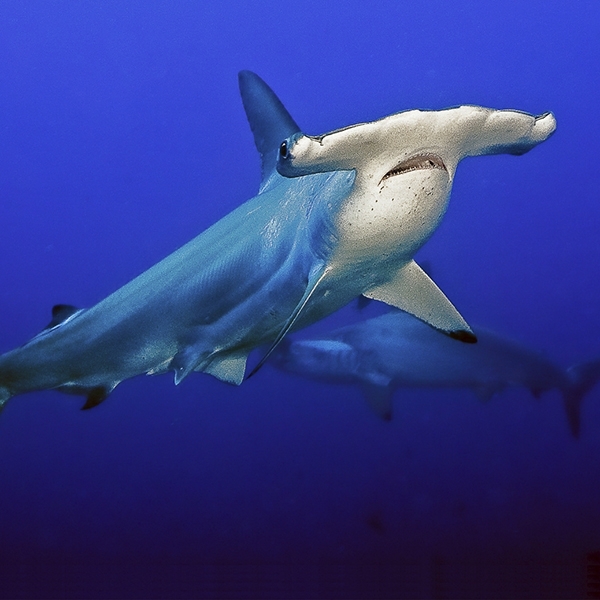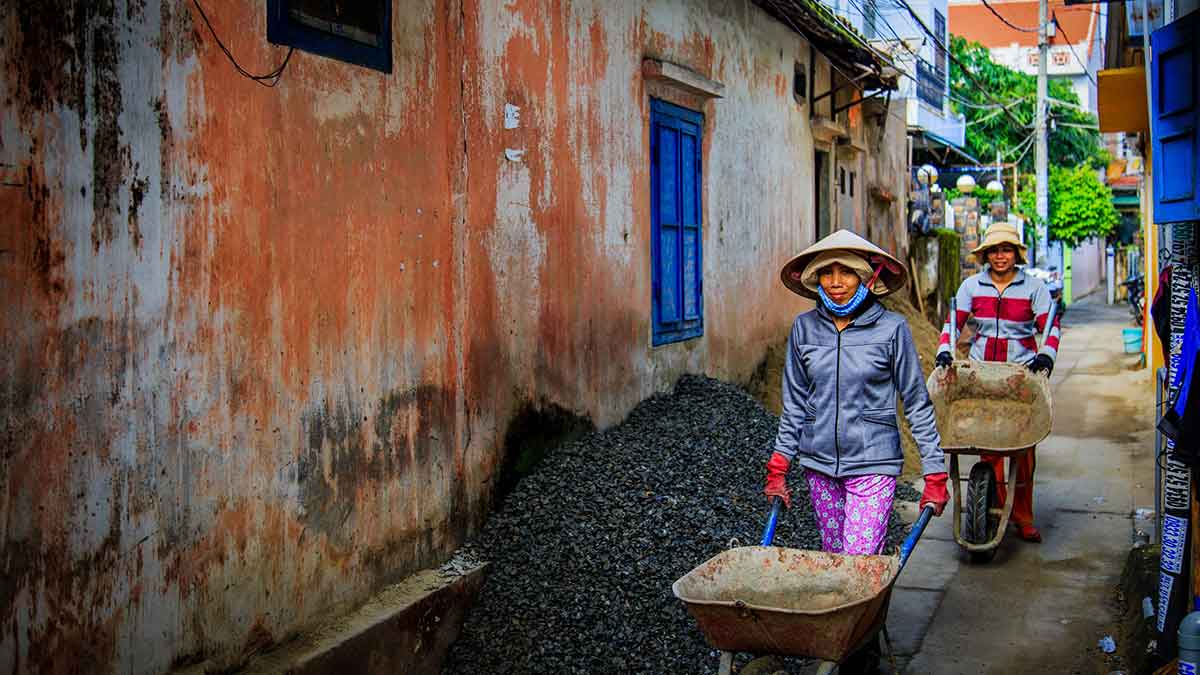Balancing marine conservation with community well-being by adding value to the local fish economy in Galapagos Marine Park.
A biodiversity hotspot both on land and underwater, the Galapagos Islands are an area of extraordinary global biological significance. Because the islands are extremely isolated, an especially high percentage of the species in the Galapagos cannot be found anywhere else on the planet. In addition, the region serves as a habitat for nearly 3,000 marine species and is home to the largest biomass of sharks on the planet.
Marine Life in Danger

Growing pressures from legal and illegal fishing practices increasingly threaten the islands’ unique marine life. Over the years, certain species such as sea cucumbers and lobsters have been exploited by overfishing. Sharks are particularly vulnerable as they are often hunted for their valuable fins which are used to make shark-fin soup – a delicacy in Asian markets. The decline of shark populations extends far beyond the Galapagos region with scientists estimating that almost 100 million sharks are killed each year. At this rate, it is impossible for the sharks to reproduce fast enough to maintain their population. This not only threatens the long-term existence of many shark species, but also results in serious consequences for marine ecosystems as a whole.
Conservation at Odds with Local Livelihoods

Over the years, fishermen in the Galapagos have faced numerous added regulations as local priorities have shifted towards conservation and tourism development. Since the Galapagos Marine Reserve was created in 1998, commercial fishing has been restricted within its borders and local fishermen have only been allowed to practice artisanal fishing. In 2016, Ecuador formed a 15,000 square-mile marine sanctuary within the existing Marine Reserve. By banning fishing in designated areas, the new sanctuary is designed help threatened wildlife populations to thrive. While conservation measures such as these are beneficial for wildlife, they can also have unintended consequences for local communities, such as the over 400 local fishermen and their families who depend on harvesting fish for their livelihoods.
Our Role
While it may be easy to point fingers at the fishermen and overlook their concerns, our experience has shown that environmental conservation and community well-being should go hand in hand. As one of the oldest economic activities on the islands, fishing is deeply embedded within the Galapagos’ culture. For many of the fishermen, it is a way of life that has been passed down from one generation to the next. Losing the fishermen would not only alter the community’s identity, but it would also threaten local food security and drive up reliance on imported food – meaning higher prices for locals as well as an increased likelihood of new biohazards being introduced to the islands. In addition, it would also diminish the authenticity of the Galapagos culinary tourism experience.
To lessen tensions surrounding the new sanctuary, in 2016 Sustainable Travel International worked with the fishermen, government, park management, local businesses, and NGOs to identify ways to support those affected by the added regulations. Through a series of interviews, workshops, and focus groups, our team was able to gain a better understanding of the problems and potential opportunities related to two intervention strategies:
- Increasing the value of locally-caught fish
- Pinpointing alternative livelihood opportunities for fishermen within the marine tourism sector
Through this collaborative process, we developed an action plan that outlines recommended next steps for the Government of Ecuador to alleviate the conflict and successfully implement these strategies. We hope that once this plan is put into action, that it will result in a beneficial future for both the wildlife and the residents of the Galapagos.
Project Type

Destination: Galápagos Islands

Region: South America
Location
Dates
2016
Explore More Projects
Protect the Places You Love
Help conserve our planet’s most vulnerable destinations and empower the people who live there. Join the movement today.


